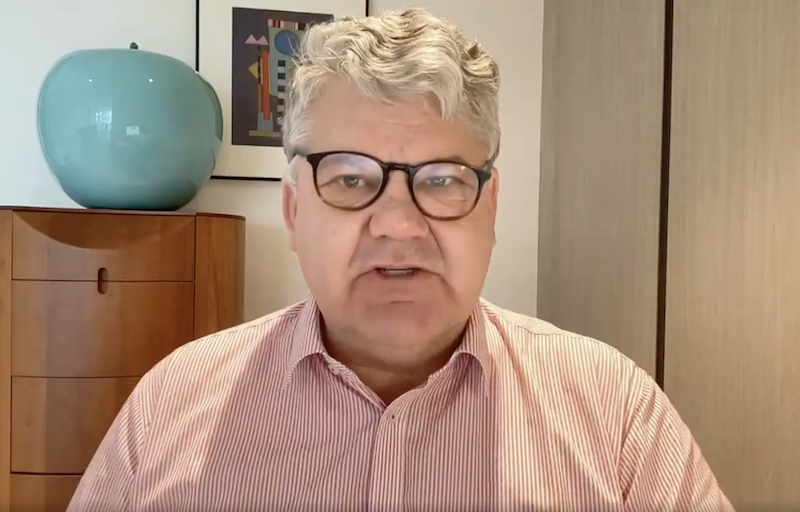
Economist Stephen Koukoulas
As public concern intensifies about the prospect of a protracted recession in the domestic economy, leading economists are divided over whether the Reserve Bank’s latest official rate hike will amount to “overkill”.
Independent economist Stephen Koukoulas yesterday labelled the June official rate decision as “a policy mistake” particularly in light of weak growth data that was published on Wednesday morning – less than 24 hours after the monthly RBA board meeting.
According to official GDP data published by the Australian Bureau of Statistics, the domestic economy decelerated sharply in the March quarter as households reined in spending and construction activity contracted.
The economy grew by only 0.2 per cent over the three-month period, the lowest level of seasonally adjusted growth recorded since Covid-induced lockdowns paralysed activity in the September quarter of 2021.
“This is a really worrying slowdown in the economy in the March quarter that occurred before the bulk of the interest rate hikes had a full effect,” he said.
“The economy is in a lot of stress right now and the RBA is hiking interest rates on a whim, on a fantasy.
“I’m very worried that when we get the June quarter numbers in three months we’ll have another weak result.”
Koukoulas observed that the dramatic slowdown in the economy would drive down inflation and that continued tightening of monetary policy risked tipping Australia into a recession.
RBA Governor Philip Lowe yesterday defended the board’s decision, telling a Morgan Stanley conference in Sydney that he recognised the uneven impacts that rising official rates were having on the household sector.
“The return of inflation to target requires a more sustainable balance between aggregate demand and supply,” he told the conference.
“The tool that the RBA has to achieve this balance is interest rates.
“I acknowledge that the use of this tool comes with complications.
“Its effects are felt unevenly across the community, with rising interest rises causing significant financial pressure for some households.
“But this unevenness is not a reason to avoid using the tool that we have.”
Lowe said the RBA would not tolerate persistent higher inflation because its effects would be more costly and damaging to the economy and all Australians.
“Yesterday’s decision to increase interest rates again was taken to provide greater confidence that inflation will return to target within a reasonable timeframe,” he said.
“It follows recent information that has suggested greater upside risks to the Bank’s inflation outlook.
“Services price inflation is proving persistent here and overseas, and the recent data on inflation, wages and housing prices were higher than had been factored into the forecasts.”
Money markets are pricing in a higher likelihood of further official rate increases in July and August following the RBA board meeting this week.
Deutsche Bank economist Phil O’Donaghoe, who forecast the June rate rise, believes the RBA is now eyeing a cash rate of 4.6 per cent by the first week of September.
O’Donaghoe has forecast a pause in July followed by successive hikes in August and September.
He is supportive of the RBA’s tightening bias.
“The economy is withstanding the hiking cycle better than most seemed to think likely,” he said.
“That complicates the RBA's task of getting inflation back to target from its current intolerably high levels.
“Multiple rate hikes now look likely to be delivered before the end of this year.
“For us, the only open question is when.”
Senior economists spent most of Wednesday downgrading their economic forecasts and elevating their peak forecasts for the cash rate.
While some economists are tipping the cash rate to rise as high as 4.85 per cent, CBA’s head of Australian economics, Gareth Aird last night revised his peak forecast to 4.35 per cent.
Aird also pushed out the time horizon for when the RBA would begin loosening monetary policy.
CBA is now expecting the RBA to deliver 125 bps of rate cuts in 2024.